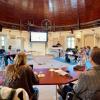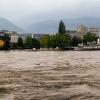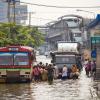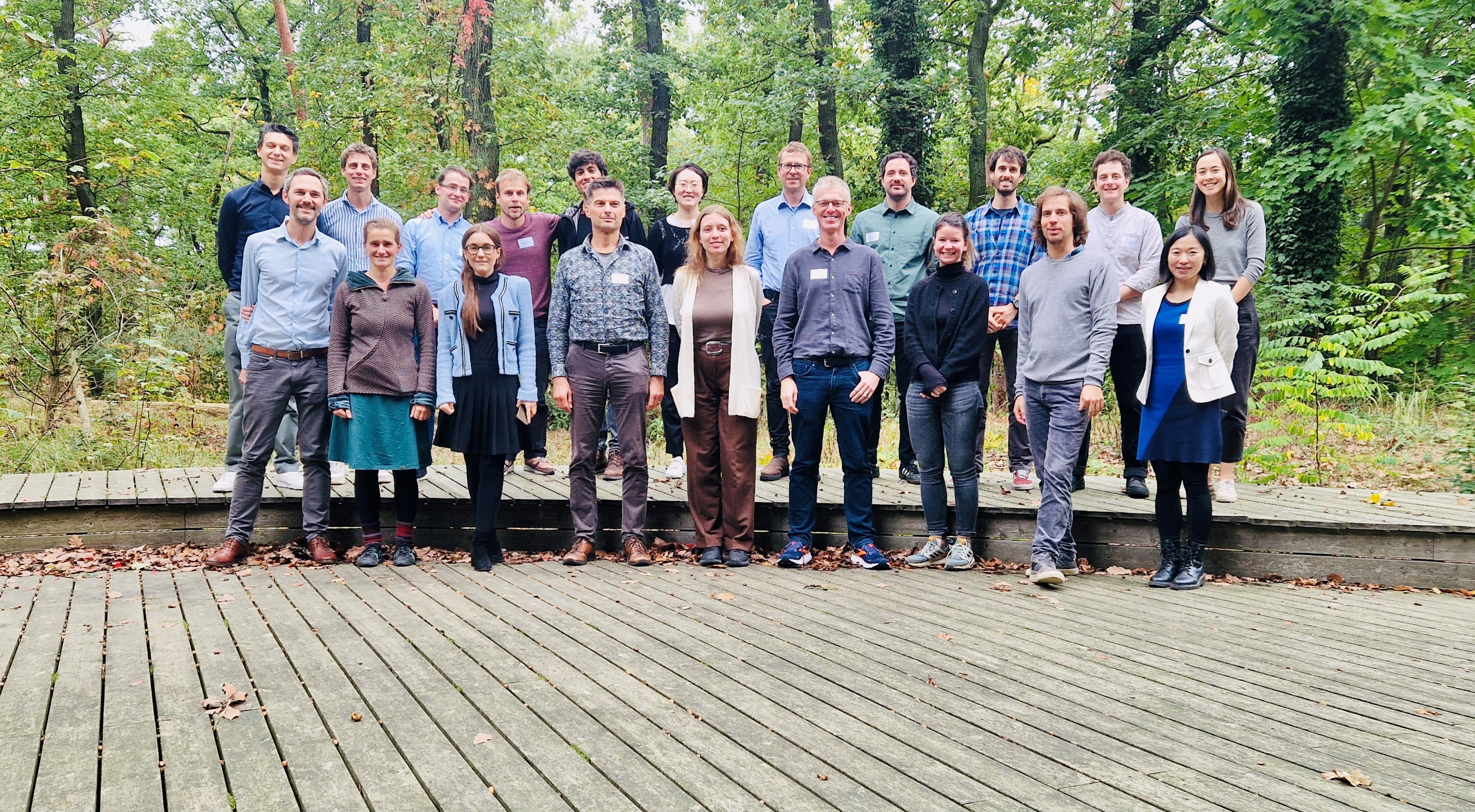
The SPARCCLE consortium gathered at the Potsdam Institute for Climate Impact Research (PIK) from 8th to 10th October for an in-person meeting and workshops, celebrating a year of progress and planning for the next phases. The three-day event brought together consortium members from across nine countries, as well as the project’s esteemed Stakeholder Advisory Board members.
The agenda opened with two engaging workshops. The morning session, led by communications expert Holly Simpkin from Climate Analytics, focused on science communications, providing participants with effective strategies for messaging scientific content to various audiences. This was followed by a half-day workshop on adaptation pathways in scenarios, delivered by SPARCCLE’s own Marina Andrijevic. The objectives of this session were to assess the current state of adaptation pathways science and to develop guidelines for designing sectoral adaptation pathways for the EU, setting the stage for a more extensive workshop planned for February 2025.
The following day began with a keynote speech by Dr Leonie Wenz from PIK, who officially opened the meeting by presenting her latest work on the macroeconomic damages from climate change, providing the impetus for two days of discussions. Plenary and breakout sessions followed, with a key focus on presenting and discussing the framework for the stress-test scenarios designed to assess high impact components of the socioeconomic risks of climate change in Europe. Participants also advanced planning the stakeholder workshop scheduled for December, which aims to engage policymakers at EU-level for input and feedback on policy analysis.
The meeting further included a panel discussion with the Advisory Board members, providing an invaluable opportunity for the consortium to gain insights and perspectives. Additionally, dedicated sessions facilitated bilateral discussions among partners, fostering synergies across project efforts. The evenings were reserved for social gatherings, allowing the participants to reflect on discussions and strengthen their collaboration in a more informal setting.
Building on the momentum of this successful gathering, the consortium is well-prepared to advance its objectives in the coming year.
Adapted from a news item shared on the SPARCCLE website.
News

20 January 2025
SPARCCLE Workshop Gathers EU Policymakers for Policy Feedback and Insights

04 October 2024
Countries under fiscal pressure from recent disaster events

02 September 2024


